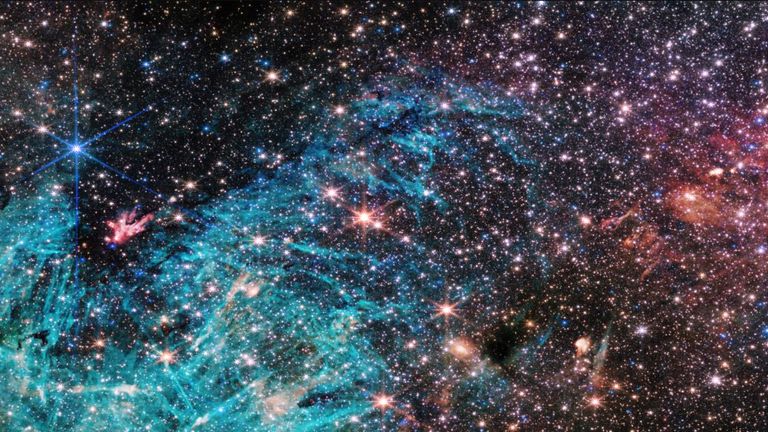A new image from NASA’s James Webb Space Telescope reveals never-before-seen features at the centre of the Milky Way.
It shows a portion of the centre of our galaxy about 25,000 light years from Earth in “unprecedented detail”.
It will allow astronomers to learn more about how stars are formed in an “extreme cosmic environment”, NASA said.
“The image from Webb is stunning, and the science we will get from it is even better,” said the observation team’s principal investigator Samuel Crowe, an undergraduate student at the University of Virginia in Charlottesville.
“Massive stars are factories that produce heavy elements in their nuclear cores, so understanding them better is like learning the origin story of much of the universe.”
The image shows more than 50,000 stars and a cluster of protostars – stars that are still forming and gaining mass.
At the heart of this young cluster is a massive protostar over 30 times the mass of our Sun.
The star-forming region, named Sagittarius C, is close enough to study individual stars with the Webb telescope, allowing astronomers to gather information on how stars form in this environment.
“There’s never been any infrared data on this region with the level of resolution and sensitivity we get with Webb, so we are seeing lots of features here for the first time,” Mr Crowe said.
Rubén Fedriani, a co-investigator of the project at the Instituto Astrofísica de Andalucía in Spain, said: “The galactic centre is a crowded, tumultuous place.
“There are turbulent, magnetised gas clouds that are forming stars, which then impact the surrounding gas with their outflowing winds, jets, and radiation.
“Webb has provided us with a ton of data on this extreme environment, and we are just starting to dig into it.”
